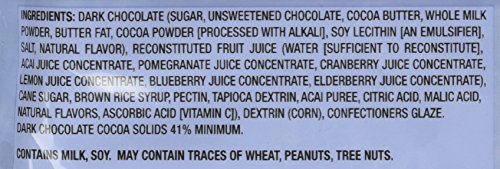Trader Joe's Simply the Best Trek Mix
Category: Snacks

Humanity has long grappled with the notion of free will and its implications for our understanding of morality, responsibility, and the human condition. At the heart of this debate lies the question: do we truly have the capacity to make choices, or are our actions ultimately predetermined by factors beyond our control?
The concept of free will suggests that individuals possess the ability to make autonomous decisions, unencumbered by external constraints or causal determinism. This view holds that our choices are the result of our own will, our own reasoned deliberations, and our own moral compass. Proponents argue that this capacity for self-determination is what grants us moral agency and the ability to be held accountable for our actions.
On the opposing side, the doctrine of determinism posits that every event, including human behavior, is the inevitable consequence of preceding events in a continuous chain of causation. From this perspective, our thoughts, decisions, and actions are ultimately the product of factors outside our conscious control, such as our genes, our upbringing, our environment, and the complex interplay of physical and neurological processes in the brain.
The debate surrounding free will has vast implications for our understanding of human behavior, our justice system, and our sense of personal responsibility. If we are indeed devoid of free will, how can we justly hold individuals accountable for their actions? If our choices are predetermined, can we truly be considered moral agents, capable of making ethical decisions?
Philosophers, scientists, and theologians have grappled with these questions for centuries, offering a range of perspectives and arguments. Compatibilists, for instance, argue that free will and determinism are not mutually exclusive, and that we can still be considered free agents even in a deterministic universe. Libertarians, on the other hand, contend that genuine free will is incompatible with determinism and that we must possess the ability to make uncaused choices.
Ultimately, the debate over free will remains unresolved, with valid arguments on both sides. While some may find comfort in the idea of personal autonomy and moral responsibility, others may find solace in the notion that our actions are not truly our own, but rather the inevitable result of factors beyond our control.
Regardless of one's stance on the issue, the continuous exploration of free will and its implications remains a crucial part of our ongoing quest to understand the human experience and our place in the world.
product information:
| Attribute | Value | ||||
|---|---|---|---|---|---|
| is_discontinued_by_manufacturer | No | ||||
| product_dimensions | 7.5 x 6.25 x 1 inches; 1 Pounds | ||||
| manufacturer | Trader Joe's | ||||
| best_sellers_rank | #63,188 in Grocery & Gourmet Food (See Top 100 in Grocery & Gourmet Food) #161 in Mixed Nuts | ||||
| customer_reviews |
|




















